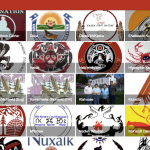To support Indigenous community development, new approaches to education are needed. This paper describes an approach leading to community-based knowledge through partnerships between First Nations and educational institutions in Canada. Using a “generative curriculum model, Indigenous knowledge is brought into the process of teaching and learning by community Elders, and this is considered alongside with Eurowestern theory, research, and practice” (Ball, J, 2004). This partnership approach of how to bring the two different visions together demonstrates to strengthen community capacity through education that encourages broad community participation and emphasizes Indigenous knowledge and experience.
Ball, J. (2004). As if Indigenous knowledge and communities mattered: Transformative education in First Nations communities in Canada. American Indian Quarterly, 454-479.

